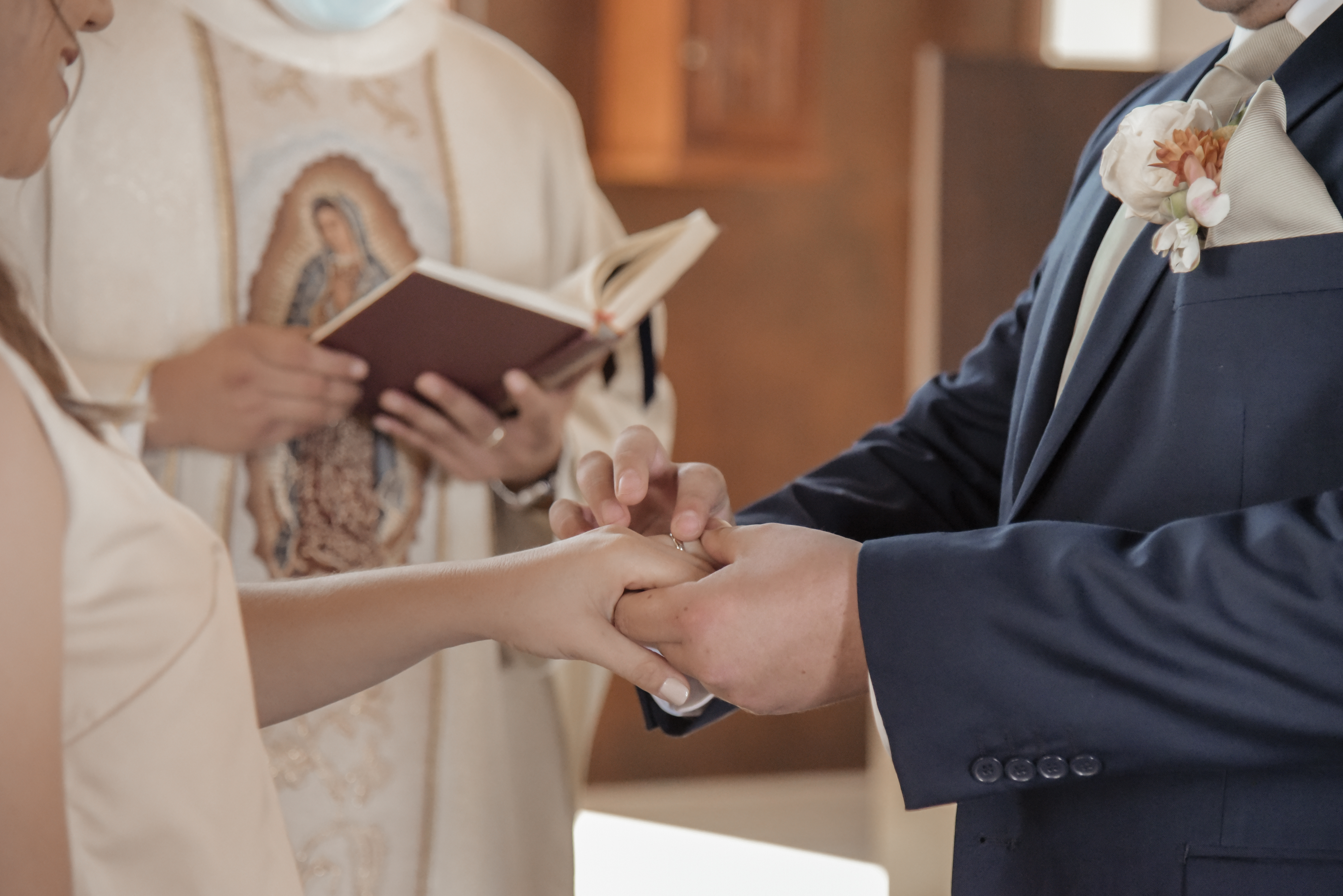As the eldest child, I was born into a leadership role and have continued to have more leadership roles as I’ve grown older. In leadership roles, it’s easy to get an inflated ego. People are asking you questions, asking for advice, and needing your presence and validation. But someone once told me that a great leader is not someone who makes themselves look more successful; A great leader is someone that makes others feel more successful. Moreover, a great leader is someone that makes the “lowest” or “outcast” feel included and successful.
In the First Reading, we are immediately thrown into a passage in which the leaders have not been good leaders so they are being punished. Not only have they led their people astray but they have also left them to their own devices. No right, no wrong, no direction. This passage also reminds us that the LORD is our shepherd. In one fell swoop, we learn about the consequences of not being a good leader, but also get a quick reminder that it is not man that we should expect to lead us, but the Lord.
Of course, this brought the parable of the lost sheep back to the forefront of my mind. In Luke 15, Jesus uses this example to share that even if 99 of the sheep are safe and herded, we should go looking for the one sheep that is lost. Then, once the lost sheep is found, there is rejoicing. That is being a good leader and a good, fellow Christian.
I think both of today’s readings tie into that parable since they serve as reminders to us to not only bring that one lost person back to the faith and be Christ’s love to them, but also that we should not be prideful and think, “Well, it’s not my fault they got lost. Maybe if they were like me and went to Church and prayed, then they wouldn’t be lost.” But this is not being humble. That is selfishness, pride, and jealousy.
Upon further reflection, I’m left looking at where I have failed to be a humble servant of the Lord and humble leader to His people. Have I left my parents and those older than me to their own devices because “they don’t need to be reminded to go to Mass since they’re older and wiser”? Have I avoided Christian conversation with certain people because my pride tells me that I will look ignorant of the Bible? Have I let others fall because I thought they deserved it? What other ways have I not acted out of love, because it was what felt easier?
Ask yourself; What kind of shepherd am I?
Heavenly Father, we humbly come to you and ask for your assistance.
Help us to avoid selfishness, pride, and jealousy
so we can minister to your flock, our fellow brothers and sisters.
Give us strength to put our egos aside,
so we may do what is right, not what is easy.
Be with us in each step so that we are not afraid
to leave the 99 and find the 1,
so we may rejoice with you once found.
Amen.
Como hija mayor, nací con un rol de liderazgo y he seguido teniendo más roles de liderazgo a medida que crecía. Con roles de liderazgo, es fácil tener un ego inflado. Las personas te hacen preguntas, te piden consejos y necesitan tu presencia y validación. Pero alguien me dijo una vez que un gran líder no es alguien que se hace ver más exitoso; Un gran líder es alguien que hace que los demás se sientan más exitosos. Además, un gran líder es alguien que hace que los “menospreciados” o los “marginados” se sientan incluidos y exitosos.
En la Primera Lectura, somos arrojados inmediatamente a un pasaje en el que los líderes no han sido buenos líderes, por lo que están siendo castigados. No solo han descarriado a su pueblo, sino que también los han dejado a su suerte. No hay bien, no hay mal, no hay dirección. Este pasaje también nos recuerda que el Señor es nuestro pastor. De un solo golpe, aprendemos acerca de las consecuencias de no ser un buen líder, pero también recibimos un rápido recordatorio de que no es el hombre quien debemos esperar que nos guíe, sino el Señor.
Por supuesto, esto trajo al frente de mi mente la parábola de la oveja perdida. En Lucas 15, Jesús usa este ejemplo para compartir que incluso si 99 de las ovejas están a salvo y pastoreadas, debemos ir a buscar la oveja que se perdió. Entonces, una vez que se encuentra la oveja perdida, hay regocijo. Eso es ser un buen líder y un buen compañero cristiano.
Creo que las dos lecturas de hoy se relacionan con esa parábola, ya que nos sirven como recordatorios no solo para traer de vuelta a la fe a esa persona perdida y ser el amor de Cristo para ellos, sino también que no debemos ser orgullosos y pensar: “Bueno, no es mi culpa que se hayan perdido. Tal vez si fueran como yo y fueran a la iglesia y oraran, entonces no se perderían”. Pero esto no es ser humilde. Eso es egoísmo, orgullo y celos.
Después de reflexionar más, me quedo viendo dónde he fallado en ser un humilde siervo del Señor y un humilde líder para Su pueblo. ¿He dejado a mis padres y a los que son mayores que yo solos porque “no necesitan que les recuerden ir a misa porque son mayores y más sabios”? ¿He evitado la conversación cristiana con ciertas personas porque mi orgullo me dice que pareceré ignorante de la Biblia? ¿He dejado caer a otros porque pensé que se lo merecían? ¿De cuales otras formas no he actuado por amor, porque era lo que me parecía más fácil?
Pregúntese; ¿Qué tipo de pastor soy?
Padre Celestial, humildemente venimos a ti y te pedimos tu ayuda.
Ayúdanos a evitar el egoísmo, el orgullo y los celos
para que podamos ser ministros a tu rebaño, nuestros hermanos y hermanas.
Danos fuerza para dejar de lado nuestros egos,
para que podamos hacer lo correcto, no lo fácil.
Acompáñanos en cada paso para que no tengamos miedo
para dejar al 99 para encontrar el 1,
para que podamos regocijarnos contigo una vez que te encontremos.
Amén.
Image Credit: Sergio Martínez, unsplash.com/photos/1eqDa8UXSPs
 Veronica Alvarado is a born and raised Texan currently living in Pennsylvania. Since graduating from Texas A&M University, Veronica has published various Catholic articles in bulletins, newspapers, e-newsletters, and blogs. She continued sharing her faith after graduation as a web content strategist and digital project manager. Today, she continues this mission in her current role as communications director and project manager for Pentecost Today USA, a Catholic Charismatic Renewal organization in Pittsburgh.
Veronica Alvarado is a born and raised Texan currently living in Pennsylvania. Since graduating from Texas A&M University, Veronica has published various Catholic articles in bulletins, newspapers, e-newsletters, and blogs. She continued sharing her faith after graduation as a web content strategist and digital project manager. Today, she continues this mission in her current role as communications director and project manager for Pentecost Today USA, a Catholic Charismatic Renewal organization in Pittsburgh.


 Emily Jaminet is a Catholic author, speaker, radio personality, wife, and mother of seven children. She earned a bachelor’s degree in mental health and human services from the Franciscan University of Steubenville. She is the co-founder of
Emily Jaminet is a Catholic author, speaker, radio personality, wife, and mother of seven children. She earned a bachelor’s degree in mental health and human services from the Franciscan University of Steubenville. She is the co-founder of 
 Mike Karpus is a regular guy. He grew up in Michigan’s Upper Peninsula, graduated from Michigan State University and works as an editor. He is married to a Catholic school principal, raised two daughters who became Catholic school teachers at points in their careers, and now relishes his two grandchildren, including the 3-year-old who teaches him what the colors of Father’s chasubles mean. He has served on a Catholic School board, a pastoral council and a parish stewardship committee. He currently is a lector at Mass, a Knight of Columbus, Adult Faith Formation Committee member and a board member of the local Habitat for Humanity organization. But mostly he’s a regular guy.
Mike Karpus is a regular guy. He grew up in Michigan’s Upper Peninsula, graduated from Michigan State University and works as an editor. He is married to a Catholic school principal, raised two daughters who became Catholic school teachers at points in their careers, and now relishes his two grandchildren, including the 3-year-old who teaches him what the colors of Father’s chasubles mean. He has served on a Catholic School board, a pastoral council and a parish stewardship committee. He currently is a lector at Mass, a Knight of Columbus, Adult Faith Formation Committee member and a board member of the local Habitat for Humanity organization. But mostly he’s a regular guy.
 Kathryn James Hermes, FSP, is the author of the newly released title
Kathryn James Hermes, FSP, is the author of the newly released title


 Christine Hanus is a thwarted idealist who, nevertheless, lives quite happily in Upstate NY. She is a wife and mother of five grown children.
Christine Hanus is a thwarted idealist who, nevertheless, lives quite happily in Upstate NY. She is a wife and mother of five grown children.
 David Dashiell is a freelance author and editor in Nashville, Tennessee. He has a master’s degree in theology from Franciscan University, and is the editor of the anthology
David Dashiell is a freelance author and editor in Nashville, Tennessee. He has a master’s degree in theology from Franciscan University, and is the editor of the anthology 
 Kate Taliaferro is an Air Force wife and mother. She is blessed to be able to homeschool, bake bread and fold endless piles of laundry. When not planning a school day, writing a blog post or cooking pasta, Kate can be found curled up with a book or working with some kind of fiber craft. Kate blogs at
Kate Taliaferro is an Air Force wife and mother. She is blessed to be able to homeschool, bake bread and fold endless piles of laundry. When not planning a school day, writing a blog post or cooking pasta, Kate can be found curled up with a book or working with some kind of fiber craft. Kate blogs at 
 Tami Urcia grew up in Western Michigan, a middle child in a large Catholic family. She spent early young adulthood as a missionary in Mexico, studying theology and philosophy, then worked and traveled extensively before finishing her Bachelor’s Degree in Western Kentucky. She loves tackling projects, finding fun ways to keep her little ones occupied, quiet conversation with the hubby and finding unique ways to love. She works at for Christian Healthcare Centers, is a guest blogger on
Tami Urcia grew up in Western Michigan, a middle child in a large Catholic family. She spent early young adulthood as a missionary in Mexico, studying theology and philosophy, then worked and traveled extensively before finishing her Bachelor’s Degree in Western Kentucky. She loves tackling projects, finding fun ways to keep her little ones occupied, quiet conversation with the hubby and finding unique ways to love. She works at for Christian Healthcare Centers, is a guest blogger on 
 Kathryn Mulderink, MA, is married to Robert, Station Manager for Holy Family Radio. Together they have seven children (including Father Rob), and four grandchildren. She is President of the local community of Secular Discalced Carmelites and has published five books and many articles. Over the last 30 years, she has worked as a teacher, headmistress, catechist, Pastoral Associate, and DRE, and as a writer and voice talent for Catholic Radio. Currently, she serves the Church by writing and speaking, and by collaborating with various parishes and to lead others to encounter Christ and engage their faith. Her website is
Kathryn Mulderink, MA, is married to Robert, Station Manager for Holy Family Radio. Together they have seven children (including Father Rob), and four grandchildren. She is President of the local community of Secular Discalced Carmelites and has published five books and many articles. Over the last 30 years, she has worked as a teacher, headmistress, catechist, Pastoral Associate, and DRE, and as a writer and voice talent for Catholic Radio. Currently, she serves the Church by writing and speaking, and by collaborating with various parishes and to lead others to encounter Christ and engage their faith. Her website is 